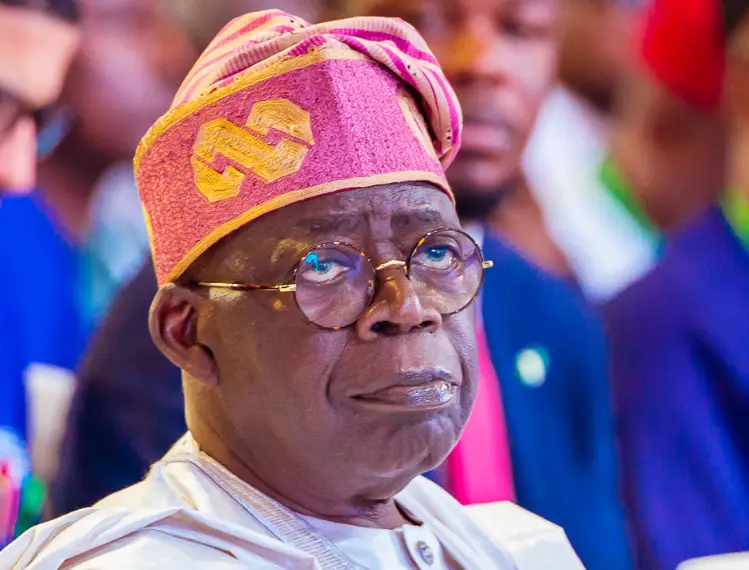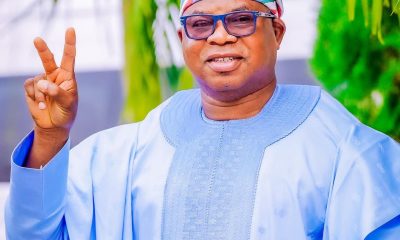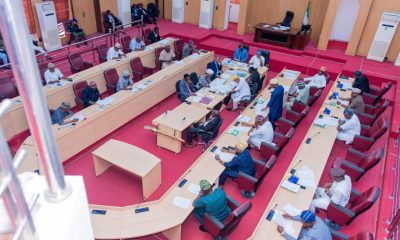News
Opinion Poll: Cost Of Living Reduction Tops Nigerians’ Expectations From Tinubu

Nigerians have identified addressing the high cost of living in the country as their top priority in their expectations from President Bola Ahmed Tinubu.
A recent online poll conducted by The Hope showed that 79 of the 153 Nigerians who voted identified it as their main concern.
The survey, conducted across The Hope WhatsApp platforms, gauged citizens’ preferences on pressing national issues.
The results revealed that 52 per cent of respondents highlighted the cost of living as the most critical challenge facing the country.
Rising inflation, increased prices of essential goods, and overall economic strain have continued to affect many households, making the issue paramount for immediate government intervention.
Electricity ranked second, with 11 per cent of respondents identifying it as a key area of concern. Many Nigerians continue to grapple with irregular power supply, high electricity tariffs, and a lack of significant progress in the energy sector.
Addressing this issue is seen as essential to improving the quality of life and boosting economic activities.
Security came third, receiving 9 per cent of the votes, largely due to incidents of banditry, kidnapping, and communal clashes across the country.
Unemployment ranked fourth, with 7 per cent of respondents prioritising it. Other issues raised by respondents include the exchange rate (6 per cent), the state of Nigeria’s refineries (4 per cent), education (4 per cent), and judicial reform and the cost of governance, each receiving 2 per cent. Additionally, 3 per cent of the respondents focused on other miscellaneous concerns.
Coincidentally, President Tinubu, in his new year message to Nigerians, pledged to reduce Nigeria’s inflation rate from 34.6 per cent to 15 per cent by the end of 2025.
Related News Owena Press Chairman preaches love, unity at new year prayer
While outlining plans to alleviate the economic burdens on citizens in 2025, Tinubu acknowledged the significant challenges posed by soaring prices of food and essential drugs in 2024, vowing that his administration would intensify efforts to boost food production and promote local manufacturing of medical supplies.
The president also pointed to several positive economic indicators, including a strengthened naira, three consecutive quarters of foreign trade surpluses, and a record performance in the stock market, which created trillions of naira in wealth.
To support economic growth and inclusivity, Tinubu announced the upcoming launch of the National Credit Guarantee Company. The initiative, set to commence operations before the second quarter of 2025, will expand credit access to individuals and underserved groups such as women and youths.
Speaking earlier in a media chat, Tinubu ruled out price controls on food commodities as a strategy to address the country’s hunger crisis. He said that market forces of supply and demand are better suited to stabilising the economy.
“I don’t believe in price control; I don’t. We just continue to supply the market; we work hard to supply the market. It is a question of supply and demand.
“It will come to a stage where you can’t hold anymore; it will come to a stage where the community variable will come against you.”
It is worthy of mention that palliative distributions in Ibadan, Anambra, and the Federal Capital Territory resulted in stampedes, with no fewer than 60 lives lost in the incidents late year 2024.
-

 Entertainment4 days ago
Entertainment4 days agoNigerian Singer, Ifunanaya, Died After Snake Bite In Abuja
-

 Opinion5 days ago
Opinion5 days agoBola Oyebamiji: Beyond Skelewu Dancer: The Rising Technocrat Poised To Govern Osun State In 2026 By Wale Atoba
-

 News4 days ago
News4 days ago20-Year-Old College Student Found Dead With Body Parts Missing In Kogi
-

 News5 days ago
News5 days agoOsun Assembly Warns UBA, Oyetola, APC Over Alleged Diversion Of Osun LG Funds


